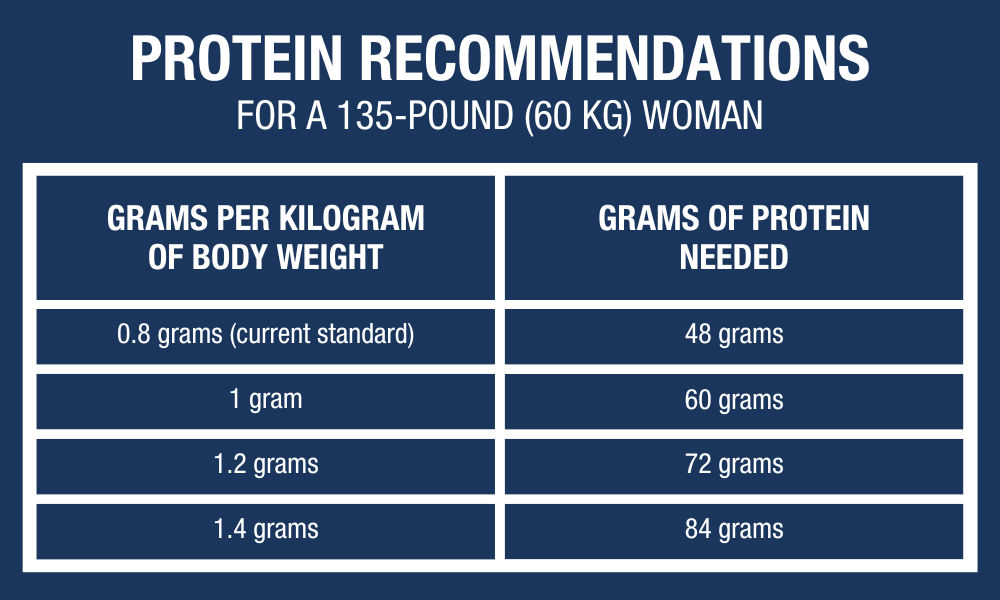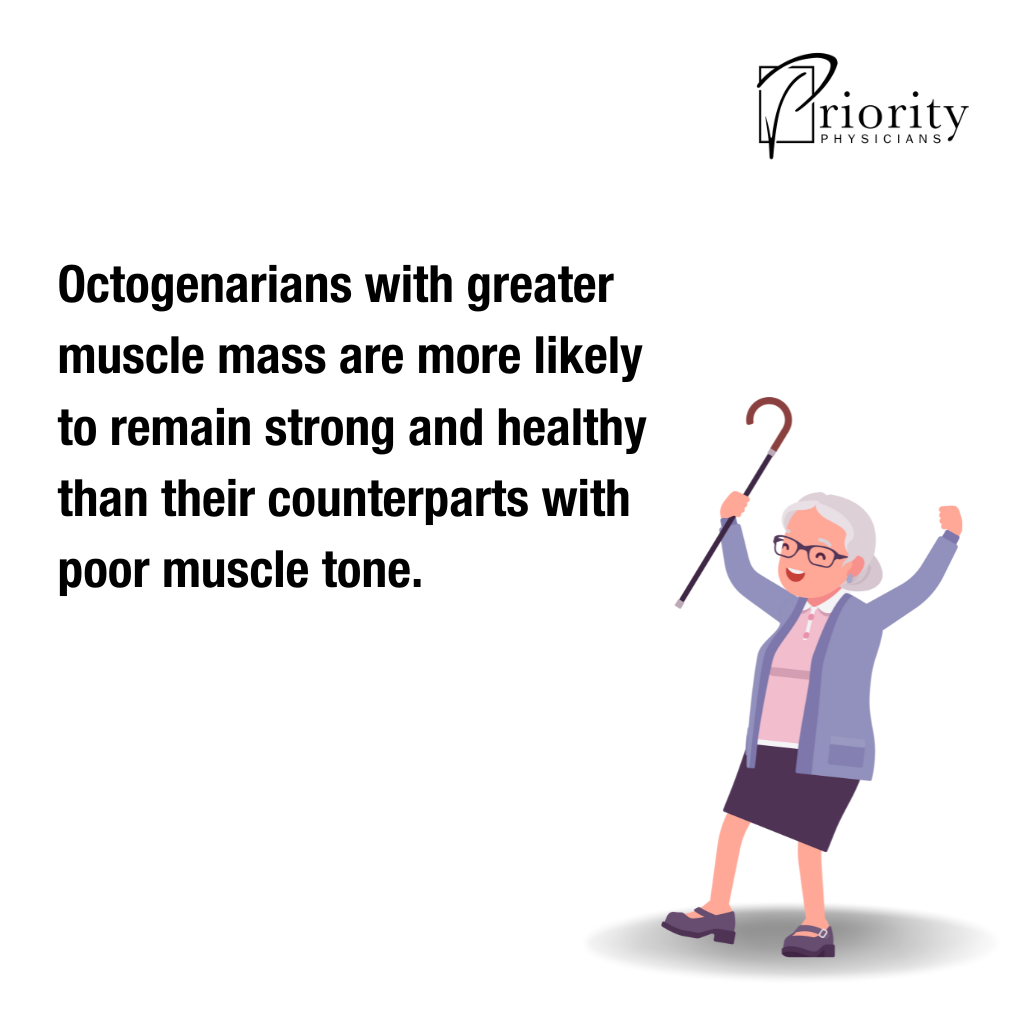Protein’s a popular topic, particularly among my female patients.
In fact, there’s a growing obsession with protein across the U.S. Both men and women (and not just high-powered athletes) are interested in the value of protein and wondering if or how they should add more to their diet.
There’s no question that protein is essential, but what’s the right amount? Let’s take a look at the daily protein intake women should consume, and why.
Protein Builds Essential Muscle
Nutrition’s not a settled science, so it’s always in flux. Studies and food trends come and go, along with scientifically backed recommendations on how and what we should eat.
Many of the current conversations about protein intake stem from observations of our aging population. What’s the difference between an independent 80-year-old with a good quality of life and a person of the same age who needs nursing home assistance?
The answer is muscle mass. Octogenarians with greater muscle mass are more likely to remain strong and healthy than their counterparts with poor muscle tone.
Of course, muscle mass doesn’t randomly occur. And it declines with age. We must continually work to build and maintain it.
Lifting weights and performing other resistance exercises call for adequate nourishment in the form of protein. Protein is an essential component of lean muscle mass. Without it, you miss an important step in your journey toward lifelong wellness.
The Daily Protein Intake Women Need
The U.S. Recommended Dietary Allowance (RDA) for daily protein intake for women is the same as for men. But despite the RDA, females tend to consume less protein than males, which can make it difficult to build adequate muscle mass.
The current recommended daily protein intake for both women and men is 0.8 grams of protein per kilogram (kg) of body weight.
But some nutritional scientists argue that the standard should be increased to 1.0 to 1.2 grams per kg of weight. Others advocate for as much as 1.4 grams of protein per kilogram; some propose taking it even higher, to 1 gram of protein per pound of weight.
Wondering how this relates to food sources? As a rule of thumb:
- Six ounces of beef contains about 40–50 grams of protein.
- Six ounces of chicken contains about 30–45 grams.
- A protein shake contains about 10–30 grams.
- A large, boiled egg contains about 6 grams.
Given the current RDA, a 165-pound person requires 75 grams of protein per day. So, what does this mean for the daily protein intake of a 135-pound (60 kg) woman?

At the other end of the spectrum, those progressive recommendations of 1 gram of protein per pound of body weight call for a 135-pound woman to consume 135 grams of protein each day.
The Many Benefits of Protein
For women who include 1.0 to 1.2 grams of protein per kilogram of weight in their daily diet, protein delivers both short- and long-term benefits that can encourage an independent lifestyle in their senior years.
Short-Term
- You provide the right nutritional balance to maintain existing muscle fibers and build new muscle.
- You heighten your metabolism, burning more calories whether your muscles are working or at rest.
- You feel fuller after eating, which encourages weight management and weight loss. It’s easier to make healthy food choices and control your weight if you’re not continually hungry.
Long-Term
- Your immune system is supported, keeping you strong and allowing you to stay active longer.
- Added muscle mass improves your bone mineral density, which helps you maintain your physical balance over time and avoid osteoporosis, falls, and fractures.
- You support proper cardiovascular function and lower your risk of heart attacks and strokes.
- You lower your odds of dementia and its related risks.

You Won’t ‘Get Bulky’
Women often hesitate to consume adequate daily protein to build muscle mass for fear they’ll “bulk up.” I sometimes hear female patients say, “I don’t want to look like a bodybuilder!”
But that’s not our goal. We physicians simply want you to maintain the beneficial amount of muscle tone and mass you probably had in your 40s. In your 50s and 60s, that muscle slowly starts to decline.
Some patients don’t like the taste of meat, or perhaps they find meat consumption unethical. This is where protein powders can come in handy. Vegetable protein is available as an alternative to meat and whey protein, though data is still being gathered on its effectiveness in building equivalent muscle.
Considering More Protein?
Ready to learn more about the daily protein intake women need? We’re happy to help.
Before you increase (or decrease) your protein intake through food or supplements, talk to your Priority Physicians doctor, especially if you have a history of kidney disease or high blood pressure, or if you’re pregnant.

